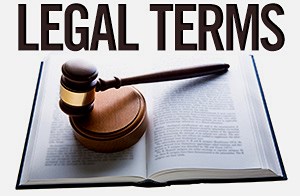Bentley v Anglican Synod of the Diocese of New Westminster 2009 BCSC 1608 is indicative of the type of litigation that can ensue between various charities that are or had previously been closely aligned.
Several churches in recent years have undergone bitter disputes amongst its congregation to do with issues such as same-sex marriage.
The elderly testatrix bequeathed property in Hong Kong worth approximately $2.2 million to “the building fund of the Church of the Good Shepherd”, which was her home church.
However due to the decision of the Bishop to authorize the right for blessing of same-sex relationships, several congregations left the diocese, including the named church.
The plaintiffs brought an application for an order for a cy-pres scheme for the proceeds from disposition of the property, and succeeded.
The court found that the bequest was to the parish, not the congregation.
The incorporating declaration of the parish stated that it was “Chinese community in Greater Vancouver Regional District”
The court found that the testatrix intended the proceeds to be applied to build the needs of the parish serving the Chinese community.
However all the churches with substantial Chinese congregations had left the diocese and affiliated with the Anglican Network in Canada.
Accordingly the court found that it would be unlikely there would be a need in the diocese for new building for the Chinese community.
Accordingly the court ordered a scheme for the funds to be held for the building needs of the Anglican Network in Canada congregation that best fulfilled the testatrix charitable intent.
The decision contained a good deal of discussion on the doctrine of cy-pres:
” The approach to determining a testator’s intention was recently set out in Re Johnston Estate, 2008 BCSC 1185 at para. 18, 42 E.T.R. (3d) 286:
When attempting to glean a testator’s intentions in the context of a possible charitable bequest, the law has taken a broad approach with a view to finding such an intention where the evidence supports it. It is not a matter of asking what a reasonable person in the place of the testator would have meant, but rather attempting to discern what the specific testator meant when he or she made the bequest. The Will itself is the primary source of that intention, but it is not the only source. Regard may be had to the surrounding circumstances, and that is so whether on its face the Wll is ambiguous or not.
Cy- pres is a remedy used to save an existing trust that is otherwise impossible or impracticable to perform. Donovan W.M. Waters, ed., Waters’ Law of Trusts in Canada, 3rd ed. (Toronto: Thomson Carswell, 2005) at 773 describes the cy-pres doctrine in these terms:
It sometimes happens that when the donor’s instrument of gift takes effect, the charitable object or the required mode of achieving the object cannot be carried out. The court will then by order approve a scheme, or require a scheme to be drawn up, for the trust property to be applied to an object or mode of achieving the object which is as close as possible to that set out by the donor. For the court to have this jurisdiction two things must be established; first, that it is impossible to carry out the object or mode of attainment, or, if it is indeed possible, that to carry out the object or mode would in the circumstances be impracticable. Second, it must be shown that the donor in making the gift had a general or overriding charitable intent. If both tests are satisfied, then the court as part of its inherent jurisdiction will, in its discretion, make the appropriate order for a cypres scheme.
[323] A number of prerequisites to cy-pres jurisdiction can be drawn from the foregoing:
(1) the donor must have transferred property in trust for a particular charitable purpose or object;
(2) it must be impossible or impracticable to administer the trust according to that purpose or object; and
(3) the donor must have demonstrated a general or overriding charitable intent. Where these conditions are met, the court then has jurisdiction to order a scheme for the trust property that is as close as possible to that intended by the donor.
[324] An example of a case involving religious property in which the cy-pres doctrine was invoked is Parish of Christ Church v. Canada Permanent Trust Co. A testator left part of his estate in trust for a parish corporation. The trust income was permitted to be used for church repairs but the capital was only to be used for the purpose of constructing a new church, whenever that might occur. Parish members applied to vary the terms of the trust on the basis of the cy-pres doctrine. They argued that the existing historical building required extensive repairs and renovations, and they sought to be permitted to direct the funds to that purpose. They additionally submitted that even if the church were accidentally destroyed some time in the future, insurance proceeds would cover the cost of rebuilding.
[325] Rogers J. held that the arguments advanced by the plaintiffs did not justify application of the cy-pres doctrine. He observed that though laudable, the plaintiffs’ present desire to preserve the old church did not bind future church officials who might hold a different view of the matter. He also considered irrelevant the fact that the church was adequately insured, as it could not be assumed that the policy would always be in force or cover every contingency. Ultimately, Rogers J. wrote, the Court had to concern itself with the wishes of the testator as to the disposition of the property, not the wishes of others; the testator’s intention in that case was clear.
[326] In Re Lysaght, [1966] 1 Ch. 191 (Chancery Div.), is another example of the doctrine being invoked. The testatrix had bequeathed funds to the Royal College of Surgeons for scholarship purposes. A recipient had to be “of the male sex and the son of a duly qualified British born medical man … and any such student must be a British born subject and not of the Jewish or Roman Catholic faith”. The Royal College declined to accept the bequest on those terms, stating that the exclusion of students of the Jewish and Roman Catholic faiths was “so invidious and so alien to the spirit of the college’s work as to make the gift inoperable in that form.” (It did not appear to object to the other restrictions.) The College was willing to accept the gift with that provision deleted.
[327] The Court held that the paramount intention of the testatrix was that the College be the trustee of an endowment fund. If the provision requiring religious discrimination was insisted upon, the College would disclaim the trust and thus defeat the testatrix’s paramount intention entirely. Performance of the trust was therefore impracticable. The Court ultimately ordered that the trust as set out in the will be amended by omitting the words “and not of the Jewish or Roman Catholic faith”. As the Court wrote at 207, “[t]he impracticability of giving effect to some ineffectual part of the testatrix’s intention cannot, in my judgment, be allowed to defeat her




